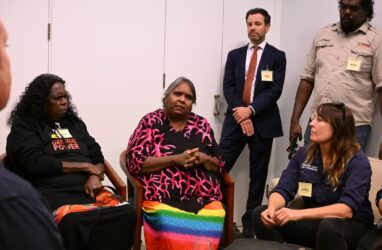
Calls for the introduction of a “Consumer Duty” in Australia’s energy market have intensified, particularly focusing on the needs of prepayment electricity customers. These customers, specifically the approximately 15,000 First Nations households, often find themselves marginalized in discussions surrounding energy reform. Advocates argue that these households should not be sidelined but instead positioned at the forefront of any reform initiatives.
The debate centers on the fairness and accessibility of energy services for vulnerable populations. Prepayment meters are often viewed as a way to manage energy costs, but they can also lead to significant disadvantages. Households relying on these meters may face higher tariffs and have less flexibility in managing their energy consumption. As such, the Australian Energy Regulator (AER) is urged to prioritize these consumers in its forthcoming reforms.
Many stakeholders, including Indigenous leaders and energy advocates, emphasize that a Consumer Duty should encompass all customers, particularly those who are economically disadvantaged. The call for reform is not merely about regulation but about ensuring that energy services are equitable and just. This perspective aligns with broader discussions about social justice and equity in essential services.
According to Renew Economy, a prominent voice in discussions on renewable energy and sustainability, effective reform must address the unique challenges faced by prepayment customers. These challenges include access to affordable energy, transparency in billing, and the ability to make informed decisions about energy use.
Advocates argue that without specific provisions for prepayment customers, reforms risk perpetuating existing inequalities within the energy market. There is a growing recognition that energy access is a fundamental right, and reform efforts must reflect this principle.
In addition, the Australian government has committed to transitioning to a more sustainable energy system. However, this transition must not come at the expense of vulnerable communities. Stakeholders are calling on policymakers to integrate the voices of First Nations households into the reform process, ensuring that their needs and experiences are reflected in the final policies.
As the conversation around energy reform continues, it is crucial to keep the focus on those most affected by these policies. Ensuring that the 15,000 First Nations households are included in discussions will not only enhance the integrity of the reform process but also promote a fairer and more inclusive energy market in Australia.
Ultimately, the success of any reform will hinge on its ability to address the needs of all consumers, particularly those who currently find themselves on the fringes. By placing prepayment electricity customers at the center of reform discussions, Australia can move towards a more equitable energy future.






